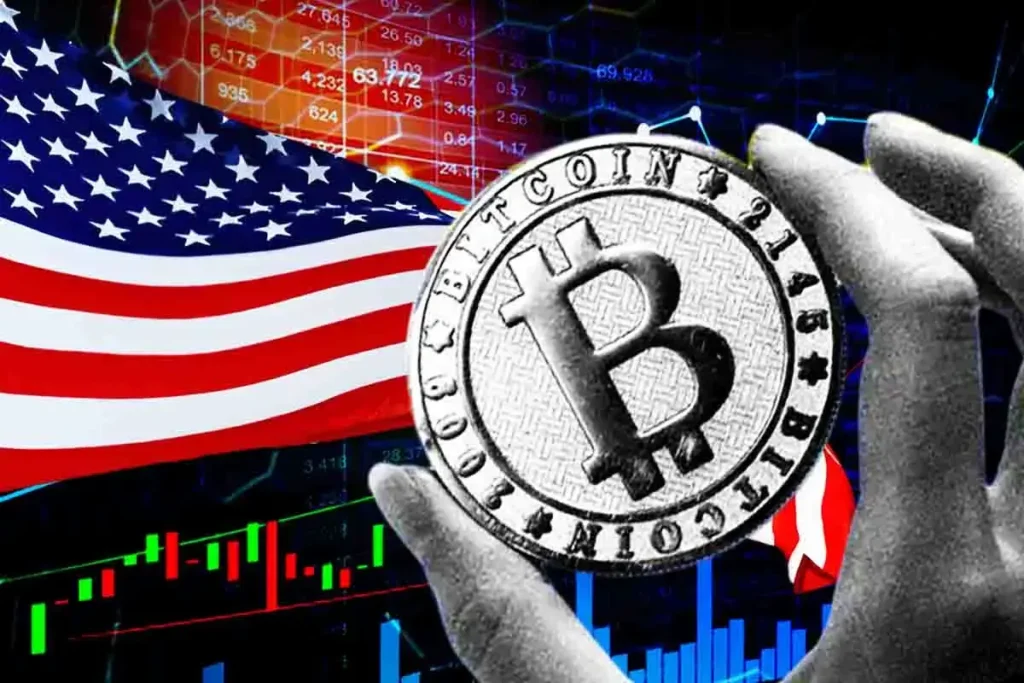The Race for Bitcoin Reserves: A Strategic Shift Among US States
In an unprecedented move, U.S. states are rapidly ramping up their efforts to establish strategic Bitcoin reserves, signaling a growing recognition of the cryptocurrency’s potential. Recently, Texas took a significant step by passing Senate Bill 21, setting the stage for a floor vote and solidifying its role in the Bitcoin landscape. This comes on the heels of Arizona’s legislative triumph in enacting its own Bitcoin reserve law. As cryptocurrency continues to gain traction, it has become a focal point for states looking to integrate digital assets into their financial systems.
Bitcoin Reserve Initiatives Gain Momentum
This week’s developments have been notable, with states like New Hampshire and Arizona implementing laws aimed at building strategic Bitcoin reserves. It’s interesting to observe that bipartisan agreement is manifesting around Bitcoin; New Hampshire has a Republican governor, while Arizona’s leadership is Democratic. This cross-party appeal underscores Bitcoin’s potential as a unifying financial asset, appealing to a broader ideological spectrum. Industry veteran Gary Cardone remarked, “GAME THEORY IGNITED! Tic Tok. We have one clean decision by NH, then a reversal from Arizona’s Governor, next is Texas who hasn’t done anything big since Big Oil and Gas!” This playful commentary reflects the growing enthusiasm around Bitcoin reserves as critical economic initiatives.
A Mixed Landscape: States Embrace and Withdraw from Bitcoin
Despite the enthusiasm, not every state is joining the Bitcoin movement. Florida, for example, has opted to withdraw its plans for a Bitcoin reserve, indicating a more cautious approach. However, Arizona lawmakers have seemingly shifted course, backing their Bitcoin legislation at the last moment. House Bill 2749, supported by bipartisan interests, was passed to ensure that Arizona doesn’t miss out on the digital asset revolution. As House Commerce Committee Chairman Jeff Weninger stated, “Digital assets aren’t the future—they’re the present.” This sentiment reflects a broader understanding among lawmakers that seizing the potential of digital currencies is a pathway to economic growth.
Bitcoin’s Price Surge and Market Dynamics
As U.S. states announce their Bitcoin reserve plans, Bitcoin’s price continues to climb, recently surpassing $99,000. Analysts are eyeing a breakout above the $100,000 mark, which could propel Bitcoin to new all-time highs. This rising trend has attracted attention globally, especially following news of China’s ¥1 trillion economic stimulus that spurred a near $3,000 surge in Bitcoin’s value. Compounding this bullish sentiment, the U.S. Federal Reserve has opted to keep interest rates unchanged at 4.25-4.5% for the third consecutive time, indicating a stable economic environment that could be conducive to cryptocurrency investments.
The Financial Implications of Bitcoin Reserves
The push for Bitcoin reserves reflects a larger strategic shift among U.S. states toward recognizing the importance of digital assets in the modern financial landscape. By establishing their Bitcoin reserves, states aim to tap into an evolving market and potentially safeguard their economies against future financial uncertainties. The implications of this strategic move can be vast; it could encourage innovation in financial services, attract tech-savvy businesses, and position states as leaders in the cryptocurrency arena.
Conclusion: The Future of Bitcoin and State Policies
As U.S. states continue to race towards establishing Bitcoin reserves, the landscape of cryptocurrency in America is evolving quickly. The bipartisan support illustrated in Arizona and New Hampshire highlights a promising trend, showing that the potential of Bitcoin is recognized across the political spectrum. States like Texas joining the conversation signifies that larger economic entities are also starting to acknowledge the importance of digital currencies. The future of Bitcoin and its integration into state policies will undoubtedly be a significant factor in shaping the narrative of cryptocurrency in the United States.
In summary, the strategic building of Bitcoin reserves by U.S. states represents a crucial development in the financial markets, driven by both political support and market dynamics. As enthusiasm for Bitcoin grows, states are positioning themselves to not only adopt but lead in the digital currency revolution, making this a pivotal moment in the history of finance.
![Decred [DCR] Price Prediction: Understanding the Emergence of the $28 Demand Zone](https://icoinmarket.com/wp-content/uploads/2026/03/Kelvin-2026-03-02T165322.285-1000x600.webp-300x180.webp)














